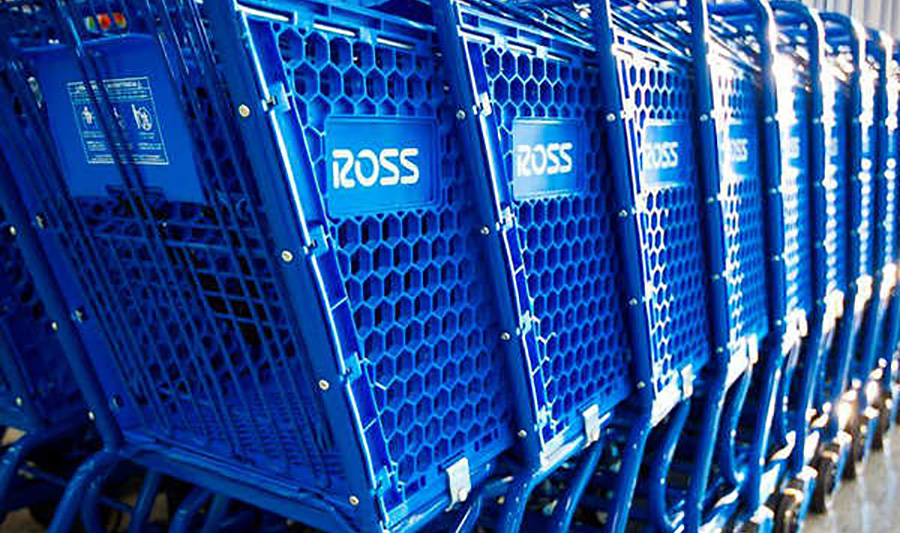Ross Stores Inc. reported a surprise profit in the second quarter despite seeing revenues decline 32.5 percent.
For the 13 weeks ended August 1, 2020, the company reported earnings per share of 6 cents on net income of $22.0 million. This compares to a net income of $413 million or earnings per share of $1.14 last year. Second-quarter 2020 results include a $174 million or 19 cents per share benefit related to the partial reversal of the inventory valuation reserve from the first quarter.
Total sales for the period were $2.7 billion, down from $4.0 billion in the second quarter of 2019.
Wall Street on average was expecting a loss of 27 cents a share on sales of $2.57 billion.
Comparable store sales were down 12 percent for reopened stores from the date of their reopening to the end of the fiscal quarter.
Both sales and earnings for these periods reflect the COVID-19 related closures of all Ross Dress for Less and dd’s Discount locations that began on March 20 and continued through a portion of the second quarter. The company began a phased process of reopening its stores on May 14, with the vast majority of its retail locations open and operating by the end of June.
For the six months ended August 1, 2020, the company reported a per-share loss of $(0.81) versus earnings per share of $2.29 for the same period last year. The net loss for the first half of 2020 was $284 million compared to net income of $834 million in the prior year. Sales for the first six months of 2020 declined 42 percent to $4.5 billion.
Barbara Rentler, chief executive officer, commented, “Comparable store sales during the quarter were impacted by a number of factors. During the initial re-openings, sales were ahead of our conservative plans as we benefitted from pent-up demand and aggressive markdowns to clear aged inventory. In the weeks thereafter, trends were negatively impacted by depleted store inventory levels while we were ramping up our buying and distribution capabilities.”
Rentler added, “Our operating margin for the period reflects the deleveraging effect from lower sales as our stores were only open on average for 75 percent of the quarter, and on the comparable store sales decline. Additional headwinds included COVID-19 related expenses and unfavorable timing of packaway-related costs. These items more than offset the benefit from the partial reversal of the inventory valuation charge taken last quarter as aged merchandise sold through much faster than we expected.”
Looking ahead, Rentler said, “As we move into the third quarter, trends have not materially changed from the second quarter with comparable store sales for the first two and a half weeks trending down mid-teens versus last year. There remains significant uncertainty on how the pandemic will continue to evolve and affect consumer demand and the economy, and the potential exists for additional government-mandated shutdowns if COVID-19 cases remain elevated or further increase. Given these risks, we will continue to plan and manage our business very cautiously. Due to the limited visibility, we have on these risks, we are not providing sales or earnings guidance at this time.”
Photo courtesy Ross Stores













